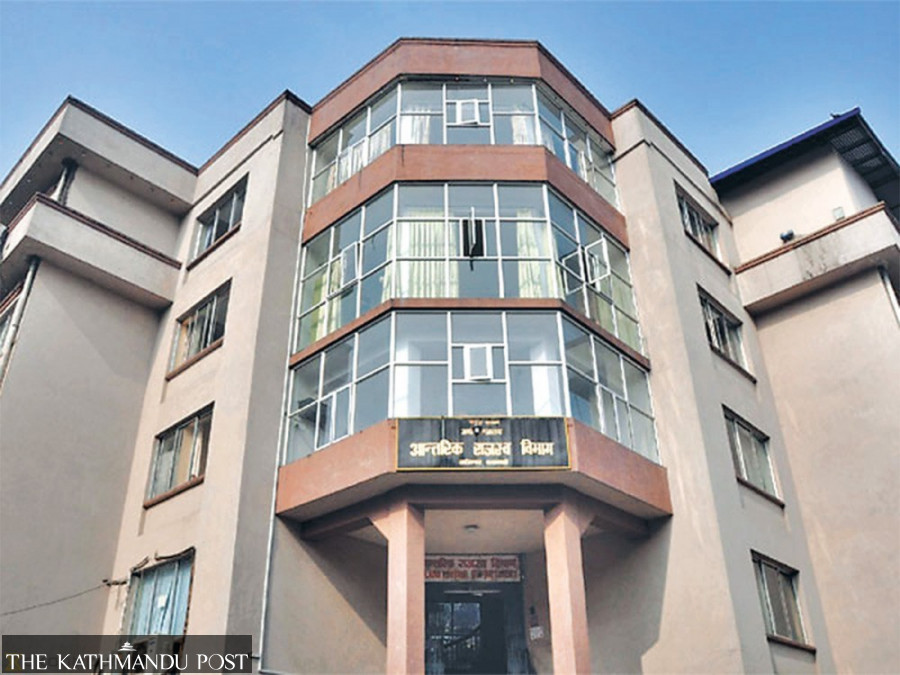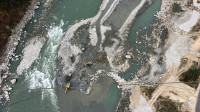National
Discount schemes fail to attract tax defaulters
Just 25 percent tax target met, latest Department report says.
Post Report
Due to poor response from tax defaulters to government schemes in the last fiscal year to provide discounts in penalty and interest on outstanding tax liabilities, the government could recover far less than its target.
According to the Annual Report 2020-21 of the Inland Revenue Department, it had aimed to recover Rs10.01 billion in income tax dues but could collect just Rs2.51 billion. But, in the case of the VAT dues, the tax offices under the department could collect more than the targeted amount—it had aimed to collect Rs4.47 billion but actual collection totalled Rs5.41 billion.
The government in the last fiscal year 2020-21 had announced two separate schemes to recover income tax and VAT dues, but the number of taxpayers participating in the schemes was far lower than the target, according to the department.
“The main reason behind poor collection of outstanding revenues is the poor response to the government schemes from individuals and businesses,” said Raju Prasad Pyakurel, information officer at the department. “Also, we could not go after the defaulter taxpayers due to the Covid-19 risks.”
When the scheme was announced, total tax dues to be recovered was Rs42.27 billion, which included Rs 21.93 billion in income taxes, Rs 19.91 billion in VAT and Rs 427.62 million in excise duties, according to the department's Annual Report 2019-20.
As per the schemes, the tax authority had asked taxpayers to submit their income tax details and applicable tax for the fiscal years 2016-17, 2017-18 and 2018-19 along with 50 percent of applicable interest as per Section 21 (1) and (2) of the Financial Act 2020. Those participating in the schemes were not required to submit tax details of earlier fiscal years while applicable taxes, fee and remaining interest would also be exempted.
Likewise, as per Section 21 (3) of the Financial Act 2020, the tax authority had asked taxpayers to submit VAT details and pay the VAT dues for the period until mid-July 2018 and 50 percent of the applicable interest by mid-March this year. In return, the concerned taxpayers could enjoy exemption of fine, additional fees and remaining interest.
Just before the expiry of the deadline in mid-March, a senior department official had told the Post that only around 5,000 of the targeted 29,447 VAT defaulters had approached the tax offices to pay the dues. Likewise, only 3,000 income tax defaulters out of the total 11,303 had come forward to clear their income tax dues.
On Monday, Pyakuryal didn’t confirm the exact number of defaulters participating in the schemes, but admitted that the response to the scheme is lower than expected. “So, the government continued certain schemes in revised forms even in the current fiscal year with additional concessions,” he said.
He said that particularly the response to the scheme from taxpayers who had registered tax review complaints to the director general of the department for administrative review or judicial review at the Revenue Tribunal, is dismal.
For example, the Financial Act 2021 provides for exemption of fines, additional fees and interests to anyone paying income tax dues in the targeted sectors unlike last fiscal year when the scheme was applicable for all the sectors.
But, the scheme is applicable to all sectors for outstanding VAT. The government also continued to offer exemption in fine, additional fees and interest if taxpayers withdrew their complaints from administrative and judicial review.
At the end of last fiscal year 2020-21, the uncontested tax dues to be recovered from taxpayers stood at Rs 39.4 billion. If the disputed tax amounts are also included then the total tax amount to be recovered by the department stands at Rs171.39 billion.
With a large number of taxpayers seeking administrative and judicial review of the tax determined by the tax authorities, the outstanding tax dues have been surging in recent years, according to the department.
Pyakuryal said the tax authority didn’t impose penalties in large scale against tax defaulters in the last fiscal year. Usually, the tax authority imposes travel bans on the taxpayers who fail to pay tax dues and freezes their bank accounts.
In the fiscal year 2019-20, tax authorities had frozen bank accounts of around 5,000 tax defaulters, mostly contractors who failed to pay their tax dues in the earlier fiscal year, 2018-19. “We didn’t take legal action against a large number of tax defaulters last fiscal year because their cash flows were disrupted by the pandemic,” said Pyakurel.




 12.62°C Kathmandu
12.62°C Kathmandu













